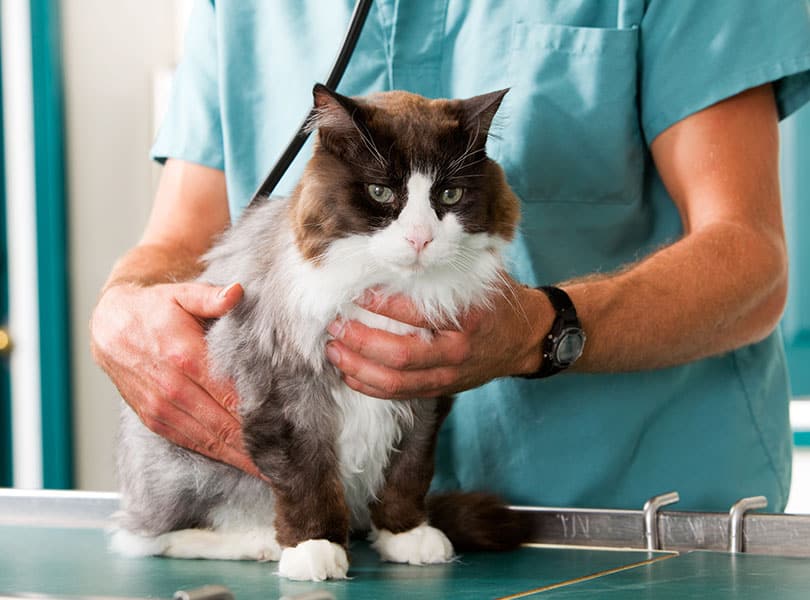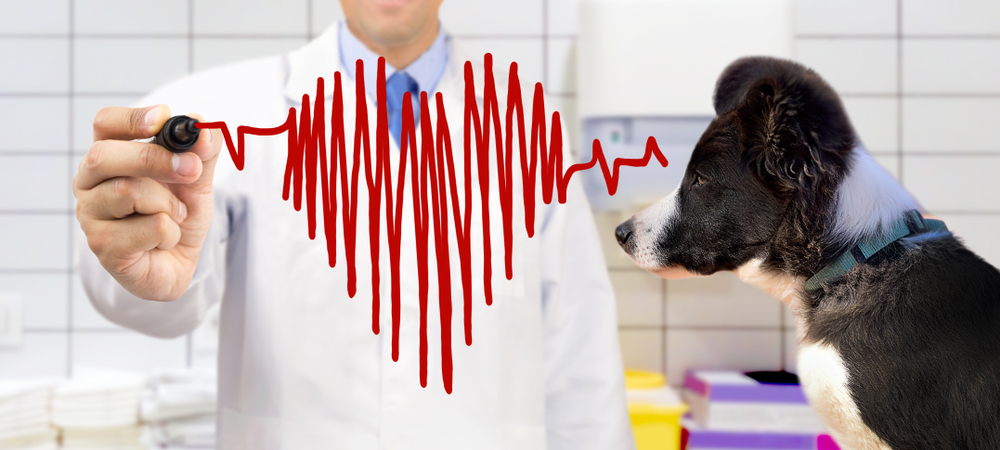Checking Out the Necessary Solutions Used by a Vet Cardiologist: Recognizing Ultrasound and CT Scan Techniques
Veterinary cardiologists play an essential duty in the health and wellness of pets by identifying and dealing with different heart problems. They use sophisticated imaging strategies, such as heart ultrasound and CT scans, to provide precise evaluations. Each method has its distinct benefits and applications. Understanding these techniques is important for animal proprietors seeking the finest treatment for their friends. What variables should pet dog owners take into consideration when selecting in between these diagnostic devices?

The Duty of Vet Cardiologists in Family Pet Medical Care
Veterinary cardiologists play an essential duty in the health care of pet dogs, focusing especially on identifying and treating heart-related conditions. They have specialized training that enables them to analyze complex analysis examinations and determine different cardio concerns. These professionals utilize advanced techniques, such as echocardiography and electrocardiography, to assess heart feature and framework accurately.Veterinary cardiologists also establish customized treatment strategies that may include drugs, lifestyle modifications, and, in some cases, medical treatments. Their competence reaches educating pet dog owners regarding heart health, stressing the importance of regular check-ups and very early detection of possible problems. Collaboration with general veterinarians is essential, as it assures extensive look after pet dogs with presumed heart problems. By providing specialized solutions, veterinary cardiologists greatly improve the quality of life for animals and give comfort for their proprietors, enhancing the importance of heart health in total pet wellness.
Typical Heart Concerns in Pet Dogs
Common heart problems in family pets can substantially affect their health and quality of life. Heart murmurs, various sorts of cardiomyopathy, and congenital heart problems are among the most widespread conditions that veterinarians run into. Cancer Veterinary Near Me. Comprehending these problems is vital for animal owners to guarantee timely medical diagnosis and proper treatment
Heart Murmurs in Pets
Heart whisperings can be a resource of concern for animal owners, they are not always a measure of serious wellness problems. A heart murmur is an unusual noise generated by stormy blood flow within the heart. In family pets, these whisperings can be triggered by various aspects, consisting of hereditary heart defects, shutoff issues, and even stress during exams. Lots of pet dogs with heart whisperings lead regular lives without significant health effects. To determine the underlying reason, vet cardiologists frequently employ diagnostic techniques such as echocardiograms and Doppler ultrasounds. Early detection and assessment are vital, as they might aid handle any kind of possible heart concerns successfully. Pet dog proprietors are encouraged to consult their vet for a comprehensive analysis if a heart murmur is spotted.
Cardiomyopathy Types Explained
Cardiomyopathy includes a group of illness influencing the heart muscle mass, bring about compromised cardiac function in family pets. One of the most common types consist of expanded cardiomyopathy (DCM), hypertrophic cardiomyopathy (HCM), and restrictive cardiomyopathy (RCM) DCM largely influences canines, causing the heart to expand and deteriorate, which lessens its capacity to pump blood effectively. On the other hand, HCM is a lot more widespread in cats, identified by the thickening of the heart walls, often leading to obstructed blood flow. RCM, though less common, occurs when the heart muscle becomes inflexible, restricting its capacity to loaded with blood. Each type provides distinct difficulties in diagnosis and treatment, demanding specialized veterinary cardiological evaluation to assure peak administration and take care of affected family pets.
Genetic Heart Problems
Congenital heart problems represent a considerable classification of heart problems in family pets, distinct from acquired conditions such as cardiomyopathy - CT Scans For Dogs. These defects are structural irregularities existing at birth, impacting the heart's regular feature. Typical types include license ductus arteriosus, ventricular septal issues, and pulmonic constriction. Signs and symptoms might vary widely, varying from moderate to severe, and can include exercise intolerance, coughing, and difficulty breathing. Early medical diagnosis with sophisticated imaging techniques like ultrasound is vital for efficient management. Vet cardiologists play an important duty in recognizing these problems and recommending proper therapy alternatives, which may include clinical administration or surgical intervention. Recognizing hereditary heart problems permits for far better results and improved lifestyle for influenced pet dogs
Recognizing Cardiac Ultrasound: How It Functions
A considerable variety of veterinary methods currently make use of cardiac ultrasound as an important diagnostic tool for reviewing heart wellness in animals. This non-invasive strategy uses high-frequency audio waves to create pictures of the heart's framework and function. During the treatment, a vet professional uses a gel to the animal's upper body and uses a transducer to emit ultrasound waves. These waves jump off the heart and bordering structures, creating real-time images on a monitor.Veterinarians can evaluate different elements of cardiac wellness, including chamber size, wall surface motion, and shutoff feature. Furthermore, heart ultrasound permits the detection of problems such as fluid build-up and genetic heart flaws. This strategy is essential for detecting problems that may not be noticeable through common radiographs. By supplying comprehensive info about the heart's composition and efficiency, cardiac ultrasound help in creating efficient therapy prepare for animals struggling with heart problem.
The Value of CT Scans in Identifying Heart Issues
Just how do CT scans enhance the medical diagnosis of heart disease in vet medicine? CT scans provide comprehensive cross-sectional pictures of the heart and bordering structures, permitting veterinarians to visualize intricate anatomical partnerships. This imaging technique is particularly useful in identifying genetic heart issues, heart growths, and problems in capillary. By using advanced imaging formulas, CT scans can evaluate heart chamber sizes and function, using a thorough sight that may be tough to attain with conventional methods.Additionally, CT angiography can picture blood circulation and recognize areas of constriction or obstruction, which is vital for planning prospective interventions. The rate and precision of CT scans additionally promote fast diagnoses, vital in emergency scenarios. Eventually, the unification of CT checks right into vet cardiology significantly enhances the precision of medical diagnoses, allowing targeted therapy plans and improving individual results for pets dealing with heart disease.
Contrasting Ultrasound and CT Scan Techniques
While both ultrasound and CT scans are invaluable tools in veterinary cardiology, they use distinctive advantages and constraints that influence their use in diagnosing heart problems. Ultrasound, or echocardiography, offers real-time imaging of the heart's framework and feature, enabling vets to examine heart chambers, shutoffs, and blood flow. It is specifically efficient for reviewing conditions like congestive heart failing and cardiomyopathy. Nevertheless, ultrasound might be restricted in envisioning specific physiological frameworks as a result of patient size or obesity.In contrast, CT scans deal detailed cross-sectional photos of the heart and bordering tissues, making them excellent for identifying structural abnormalities, tumors, or link vascular problems. Although CT scans give thorough insights, they call for sedation and may include radiation direct exposure. Inevitably, the selection in between ultrasound and CT scans relies on the particular clinical circumstance, the person's condition, and the details required click here for more info for an accurate diagnosis.
Therapy Choices Readily Available With Veterinary Cardiology
Veterinary cardiology supplies a series of treatment options customized to attend to numerous heart disease in pets. Treatment plans often begin with way of living modifications, including diet regimen adjustments and workout adjustments, intended at enhancing total heart health. Medicines play an important duty, with cardiologists prescribing drugs such as diuretics, beta-blockers, and ACE inhibitors to manage symptoms and enhance heart function.In extra serious cases, interventional treatments, such as balloon valvuloplasty or stent positioning, may be needed to minimize obstructions or improve blood flow. For particular hereditary heart defects, surgical options may be explored to correct structural problems. Additionally, ongoing surveillance and follow-up treatment are important elements of a thorough treatment plan, permitting for prompt adjustments based on the pet's response to therapy. On the whole, vet cardiology concentrates on providing effective, customized care to optimize the wellness and wellness of animal individuals with heart disease.
Just how to Prepare Your Pet Dog for a Heart Analysis
Preparing a family pet for a heart analysis is necessary to guarantee precise results and a smooth process. Owners should first arrange the visit with the vet cardiologist and discuss any kind of specific needs or problems. It is recommended to withhold food for a minimum of 12 hours before the examination, as this assists boost imaging high quality during treatments like ultrasound or CT scans.Additionally, keeping a tranquil atmosphere on the day of the visit can assist reduce the pet dog's anxiety. It is useful to bring along any type of pertinent medical records, consisting of previous tests and medications (Cancer Veterinary Near Me). Owners must also ensure that their pet dog is comfortable and leashed throughout transport to the center. Lastly, familiarizing themselves with the analysis process can minimize fears and aid in asking informed inquiries throughout the examination. By following these steps, owners can contribute greatly to the efficiency of the cardiac evaluation
Regularly Asked Questions
The length of time Does a Heart Ultrasound or CT Check Take?
The duration of a heart ultrasound typically ranges from 30 to 60 mins, while a CT check may take roughly 15 to thirty minutes. Elements such as the client's condition can influence these time quotes.

Are There Any Threats Related To These Analysis Treatments?

Can I Remain With My Family Pet During the Treatment?
The veterinary facility's plan typically dictates whether pet dog owners can stay during treatments. While some facilities encourage owner presence for comfort, others might need separation to assure safety and security and ideal conditions for analysis imaging.
How Much Do These Analysis Tests Commonly Expense?
The expenses of diagnostic tests, such as ultrasound and CT scans, usually vary based on area and facility. Commonly, costs vary from a few hundred to over a thousand bucks, mirroring the complexity and innovation involved.
What Is the Healing Process After a Heart Assessment?
The recovery process after a heart examination includes monitoring the pet for any immediate responses, guaranteeing convenience, and restricting exercise. Veterinarians generally supply post-evaluation directions to direct pet dog proprietors throughout this necessary healing period. Heart murmurs, numerous kinds of cardiomyopathy, and congenital heart problems are amongst the most widespread problems that veterinarians come across. A heart murmur is an irregular noise produced by stormy blood circulation within the heart. Cardiomyopathy includes a team of conditions affecting the heart muscle, leading to endangered cardiac feature in pet dogs. Genetic heart flaws represent a significant group of heart concerns in animals, distinctive from obtained conditions such as cardiomyopathy. go to this site Ultrasound, or echocardiography, provides real-time imaging of the heart's framework and function, allowing vets to examine heart chambers, valves, and blood circulation.